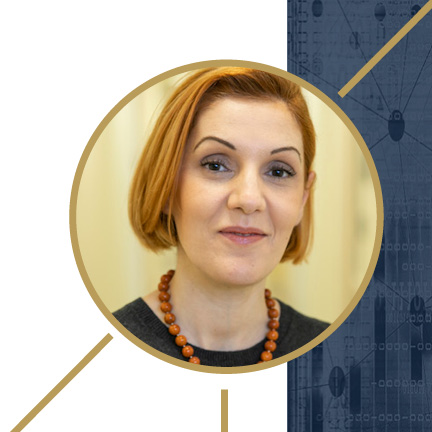Description
What do AlphaFold2, ESM1&2, ChatGPT, GPT-4, DALL-E, Hawk, Claude Opus, Birdie, Llamas, and Alpacas have in common? The word disruption comes to mind.
Those of us who started our love affair with AI because we wanted to advance scientific enquiry and the human condition are familiar with disruptions. Molecular biology has the honor of experiencing many disruptions due to ground-breaking findings by Darwin, Miescher, Rosalind, Watson and Crick, Anfinsen, Scheraga, Perutz and Kendrew, Karplus, McCammon, Levitt, Warshel, Scheraga, and many others due to rapid computational advances. Through representative examples, I will showcase some of my laboratory’s work on generative AI before and after deep learning. I will tie this work to a central question in AI, learning the right representation, and will instantiate it on diverse wicked problems in molecular biology and human health that necessitate or benefit from integrating domain knowledge. Of course, the talk will include large language models, and I will showcase some of our foundational and applied work. The latter will span science and policy space. Yet, throughout the presentation I will make clear not only what we have gained from generative AI but, perhaps more importantly, what yet remains incomplete in our understanding.
About the speaker

Amarda Shehu is a Professor in the Department of Computer Science and Associate Dean for AI Innovation in the College of Engineering and Computing at George Mason University, where she is also Associate Vice President of Research for the Institute of Digital InnovAtion (IDIA). Shehu obtained her Ph.D. in Computer Science from Rice University in 2008, where she was also an NIH Predoctoral Fellow in the Nanobiology Program. Shehu has published over 180 technical papers with postdoctoral, graduate, undergraduate, and high-school students. She is a 2022 Fellow of the American Institute for Medical and Biological Engineering (AIMBE) and has received several awards, including the 2022 Outstanding Faculty Award from the State Council of Higher Education for Virginia, the 2021 Beck Family Presidential Medal for Faculty Excellence in Research and Scholarship, the 2018 Mason University Teaching Excellence Award, the 2014 Mason Emerging Researcher/Scholar/Creator Award, the 2013 Mason OSCAR Undergraduate Mentor Excellence Award, and the 2012 National Science Foundation (NSF) CAREER Award.
Her research is regularly supported by various NSF programs, the Department of Defense, and state and private research awards. Shehu served as an NSF Program Director in the Information and Intelligent Systems Division of the Directorate for Computer and Information Science and Engineering during 2019-2022. At NSF, Shehu led the working group on the HDR: Data Science Corps program and represented and led CISE efforts in the COVID-19 RAPID Program and the Molecular Foundations in Biotechnology Program, for which she received two Director Recognition awards. Shehu is an Inaugural Founding Co-Director of George Mason University’s Transdisciplinary Center for Advancing Human-Machine Partnerships which she led during 2019-2022. Shehu represents Mason in the NIST Artificial Intelligence Safety Institute Consortium.